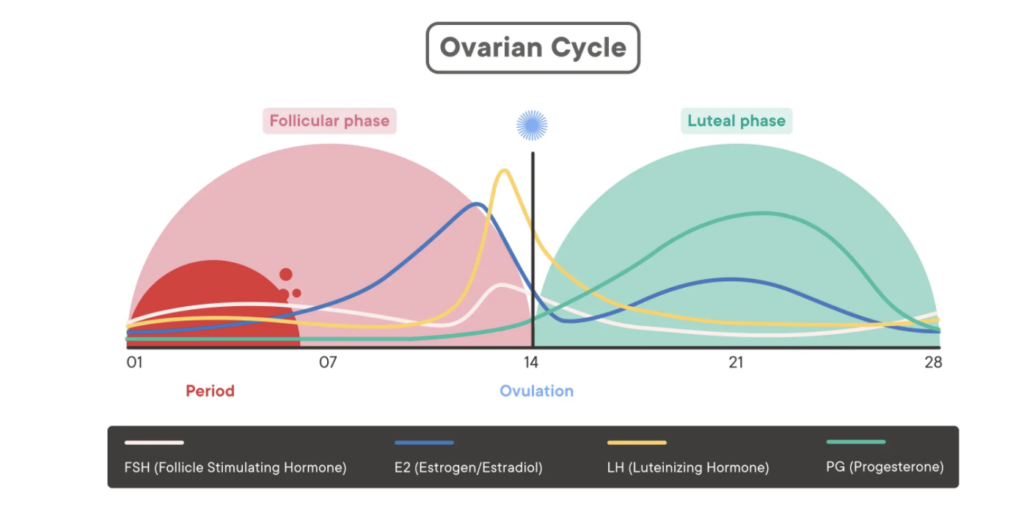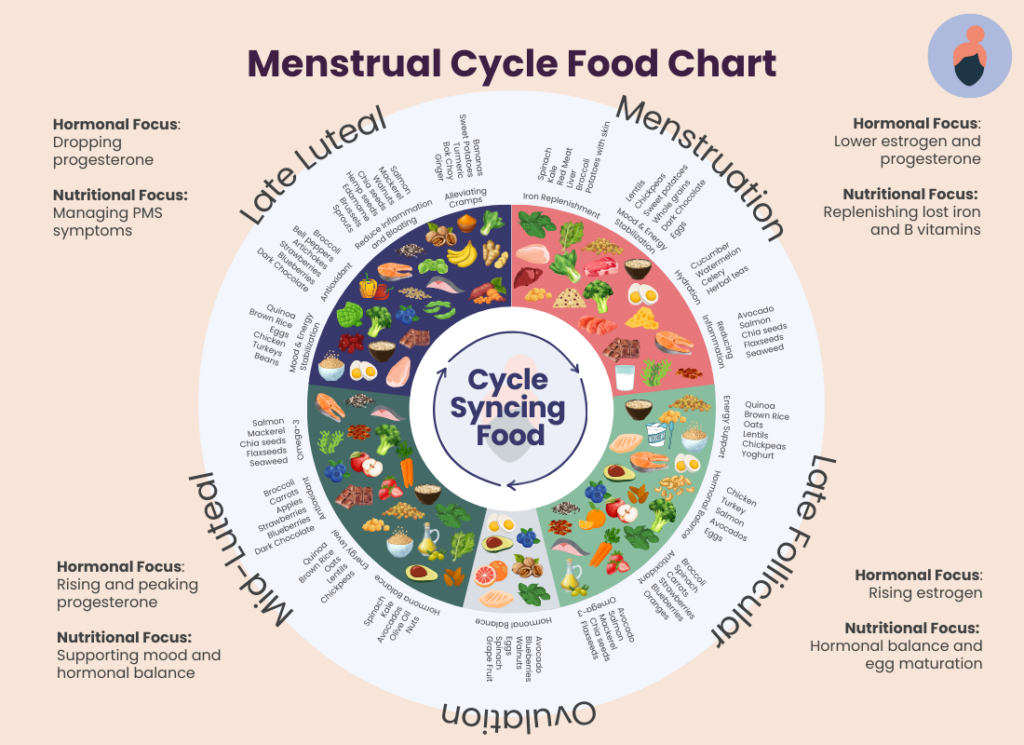
The Menstrual Cycle: A Dynamic Journey
The menstrual cycle is a complex and dynamic process that occurs in the female body, typically spanning around 28 days. Divided into four main phases – menstruation, follicular, ovulation, and luteal – each stage brings unique hormonal changes that impact mood, energy levels, and physical capabilities.
Module two helps practitioners understand what constitutes a normal menstrual cycle, goes through common menstrual deficiencies and workups, and discusses cycle syncing and essential lab testing related to the menstrual cycle.
We will discuss what constitutes a normal cycle length, blood color, flow length, and flow consistency. You will learn all the hormonal changes that occur across one’s menstrual cycle.
We will talk through various menstrual cycle deficiencies, such as luteal phase deficiency and anovulatory bleeding.
Depending on the menstrual cycle deficiency, we will discuss how to utilize labs such as:
- Hormone Panel:
- FSH (Follicle-Stimulating Hormone): Elevated levels may indicate ovarian dysfunction.
- LH (Luteinizing Hormone): Abnormal levels may suggest issues with ovulation or polycystic ovary syndrome (PCOS).
- Estradiol: This is a form of estrogen and is crucial for the regulation of the menstrual cycle. Imbalances can lead to irregular periods.
- Progesterone: Low levels during the luteal phase may indicate inadequate ovulation or luteal phase defects.
- Thyroid Function Tests:
- TSH (Thyroid Stimulating Hormone): Thyroid dysfunction can impact menstrual regularity. Elevated or low TSH levels may indicate hypothyroidism or hyperthyroidism, respectively.
- Prolactin Levels:
- Prolactin: Elevated levels may disrupt the normal functioning of the ovaries and lead to irregular menstruation.
- Androgen Levels:
- Testosterone and DHEA-S (Dehydroepiandrosterone Sulfate): Elevated androgen levels may be associated with conditions like PCOS, which can cause menstrual irregularities.
- Complete Blood Count (CBC):
- Hemoglobin and Hematocrit: Chronic or severe menstrual bleeding can lead to anemia, affecting overall health.
- Blood Sugar and Insulin Levels:
- Glucose and Insulin: Insulin resistance and elevated blood sugar levels can be linked to conditions like PCOS, affecting menstrual regularity.
- Vitamin and Mineral Levels:
- Vitamin D, Iron, B12, Folate: Deficiencies in these nutrients can impact overall health, energy levels, and menstrual regularity.
- Coagulation Studies:
- PT (Prothrombin Time) and APTT (Activated Partial Thromboplastin Time): Abnormalities may be associated with clotting disorders that can affect menstrual flow.
- Anti-Mullerian Hormone (AMH):
- AMH levels can provide insight into ovarian reserve and help assess fertility potential

Photo by: Elara Care
Finally, we will discuss the practice of cycle syncing, where you work with your body’s natural hormone fluctuations to optimize health.
- Menstruation (Days 1-7): Embracing Rest and Reflection. As the cycle begins with menstruation, energy levels may be lower. Embracing rest, self-reflection, and gentle activities during this phase can be beneficial. Engaging in mindfulness practices, such as meditation or journaling, allows for a deeper connection with oneself.
- Follicular (Days 8-14): Boosting Energy and Creativity. The follicular phase is marked by rising estrogen levels, bringing increased energy and creativity. It’s an excellent time for embarking on new projects, incorporating challenging workouts, and trying out new activities. This is the time to seize opportunities and make the most of heightened cognitive abilities.
- Ovulation (Days 15-17): Peak Energy and Social Engagement. Ovulation is the midpoint of the menstrual cycle, characterized by peak energy levels and enhanced social skills. This phase is ideal for intense workouts, socializing, and tackling demanding tasks. Communication and collaboration may come more effortlessly, making it an opportune time for team activities and networking.
- Luteal (Days 18-28): Nurturing and Self-Care. The luteal phase is marked by a rise in progesterone levels, potentially leading to increased stress and fatigue. Prioritizing self-care, maintaining a balanced diet, and incorporating calming exercises like yoga can be particularly beneficial during this time. Avoiding excessive stress and caffeine intake can help manage symptoms associated with this phase.
Conclusion: Deepen your understanding of the intricacies of the menstrual cycle
In the ever-evolving landscape of healthcare, acknowledging the menstrual cycle as the fifth vital sign represents a crucial step towards a more holistic approach to patient care. By recognizing its significance, healthcare professionals can gain valuable insights into a person’s overall health, reproductive well-being, and hormonal balance. Irregularities or abnormalities in the menstrual cycle may be indicative of underlying health issues, such as hormonal imbalances, thyroid dysfunction, or polycystic ovary syndrome (PCOS). Join us in the practitioner program to learn more about your cycle so you can help patients learn about theirs!